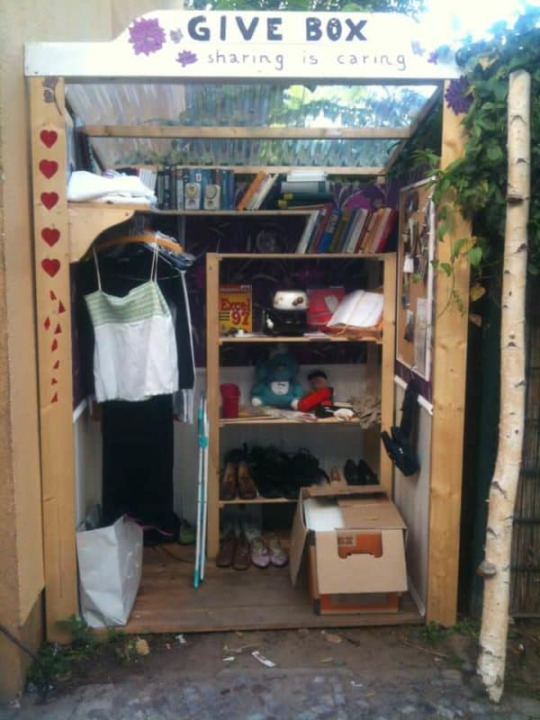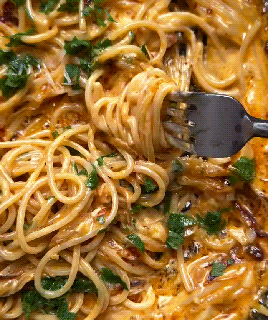Don't wanna be here? Send us removal request.
Text

Jennifer L Mohr aka Jennifer L Mueller (Canadian, b. 1980, Moose Jaw, Saskatchewan, Canada, based Airdrie, Alberta, Canada) - Sometimes I Pretend, Paintings: Acrylic on cradled Wood Panel
2K notes
·
View notes
Link
Archive.org deliver a windfall of lost music.
If you’re looking for a good way to spend the rest of your week, Archive.org have unearthed a gigantic collection of cassettes from the mid-eighties into the mid-nineties. According to their notes, the collection was saved from the archives of noise-arch.net and donated by former CKLN-FM radio host Myke Dyer in August of 2009. Due to the size and obscurity, the collection hasn’t been properly notated but is said to include cassettes ranging from “tape experimentation, industrial, avant-garde, indie, rock, DIY, subvertainment and auto-hypnotic materials”. Head to Archive now to download the free collection.
58K notes
·
View notes
Text





























Showcasing art from some of my favourite artists, and those that have attracted my attention, in the field of visual arts, including vintage; pulp; pop culture; books and comics; concert posters; fantastical and imaginative realism; classical; contemporary; new contemporary; pop surrealism; conceptual and illustration.
The art of Richard Hescox.
303 notes
·
View notes
Text
Free Pattern Wednesday: The Luthien Dress from Mood Fabrics
Written by Shavonne Cruz for Mood Fabrics, this dressmaking tutorial teaches you how to make a beautiful cosplay dress inspired by fantasy media like Lord of the Rings and House of the Dragon!

The pattern is offered free via email subscription, and the tutorial provides detailed instructions. You can check it out here!
The CovidSafeCosplay blog and its admin are unaffiliated with the patternmaker or Mood Fabrics, and are simply sharing the resource. Blog admin has not personally tested this pattern (yet). Please thoroughly read the pattern and tutorial for full instructions.
Do you have a favorite free pattern resource? Share in the comments or via a reblog! Bonus points for those that are free, include image descriptions, or contain detailed tutorials for newbies to follow.
157 notes
·
View notes
Text
you've got to learn to make yourself carbonara. you have GOT to learn how to make yourself carbonara.
1K notes
·
View notes
Text
Give-away shops
I'd like to tell you all the story of Jan's give-away shop.
The story:
Jan was a guy who lived in my hometown. Financially speaking, he was well-off: he owned the house in which he lived alone, and had gathered a lot of stuff throughout the years.
One day, Jan realised all of this stuff wasn't making him happy. He decided to move to a small apartment and to get rid of most of his possessions.
Jan also realised the privileged life he led: he owned much more than he needed, and was able to move on the fly just because he felt like it.
All of this made Jan decide to open up a give-away shop. He moved everything he didn't need to his living room, simply opened up his front door, and told everyone they could come and pick up whatever they wanted for free.
His friends declared him an idiot: humans are selfish, they said, and would just take his valuables and sell everything they'd gotten from him. They were wrong. Sure, some people did this, but they were only a small part of those who came.
Those who had less than Jan (including yours truly) came by and found things they needed but had been postponing to buy because they couldn't afford to. Others came to pick up things they could use for their charities, or for the classrooms they had to teach on a too low budget.
The biggest surprise was how Jan never ran out of things to give away: rather than taking things, a lot of people started donating items they didn't need anymore!
Objects weren't the only thing people donated: Jan quickly amassed a team of dedicated volunteers to run the shop for him whenever he was absent.
And that's the story of how my town got its first give-away shop. Unfortunately, the shop doesn't exist anymore: they closed down after about five years because Jan eventually had to sell his house.
His shop has left an important impact on my town: inspired by his shop, we now have a thriving freecycle community, town hall frequently hosts give-away markets (flee markets where everything's free), and individuals have been putting up give-away cabinets, fridges, and libraries all over where people can leave their unused goods, leftover food, and unread books for others to enjoy.
The take-away:
Not all of us are as privileged as Jan: if we were, we wouldn't have much need for projects like these. However, we can still learn from his story!
If you've got an unused cabinet lying around, why not turn it into your own give-away corner? If you work in event planning, maybe consider hosting a give-away market some time. Do you work at a library or a community centre? Those are the perfect spots to put a give-away library or a leftovers fridge: just make sure to keep an eye on anything food-related and to clean out expired goods when necessary.
Another popular variation on this idea are plant cuttings corners and seed banks. These are a great way to share native plants with fellow gardeners to improve the biodiversity in your neighbourhood.
If this post has inspired you, try petitioning your town for projects like these: they're often welcomed because they don't cost much to set up and can have a big positive impact on both your community and the environment.

(Image source) [ID: a small outdoors wooden construction with a see-through plastic roof containing a cupboard with toys, cookwares, and shoes, a hanging rail with clothes, a shelf with books, a bulletin board, and a box and a bag. The text "Give Box: sharing is caring" is painted at the top of the shed, and purple flowers and red hearts are painted on its sides.]
3K notes
·
View notes
Text
Avoiding Fast Fashion: How to Repair your Stuff
A friend texted me asking how to avoid fast fashion and the short answer is: you cant. unless you have the money to make all your own clothes, fast fashion is going to be a part of your life because it has permeated every corner of the fashion industry. However, you can learn basic mending and repair techniques to help your clothes last so that you are contributing far less to the fast fashion industry
Basic Hand Sewing How-to
How to Mend Jeans using Shashiko Methods
How to Mend Clothing (this channel is all about how to sew so check out her other videos)
Repairing a Seam
Re-attach the sole of a shoe
Repair holes in shoes 1 2
19K notes
·
View notes
Text
A legit way to fight the climate crisis from where you're sitting right now
As promised, in honor of Earth Day, I've written some suggestions for how you can write a letter to the editor for your local paper, and reach some people who otherwise might get a more...shall we say restricted view of climate news. Letters to the Editor remain a surprisingly important political vehicle. People see letters to the editor and they feel like they're hearing from their neighbors- real people with authentic, down-to-earth agendas. They're the second most read part of the paper, after the front page. Take that stage!
Step 1- Pick an article in your local paper to respond to. Today is Earth day, and lots of papers will have at least something about climate crisis or environmental protection on it's pages. Local papers are better, because, as you can imagine, papers like The New Yorker get a lot more submissions to compete against, and anyways they don't have the same sense of local opinion.
Don't fret if your local paper leans conservative! That means it has readers we REALLY need to reach! And they may be more open to reading about these issues in a paper than online, which particularly a lot of older, don't feel like "the real world".
Step 2- Figure out what you're going to say! Maybe there's a glaring error in the article you want to address. BUT, if you're not sure, you can look up your local organization that's fighting for these goals. For example, I could look up and find MN350, because I'm in Minnesota. Going to their social media and their webpage/newsletter archive gives me an inside look at what people who are really immersed in these subjects have to say about what's going on.
So, for example, I see that my local group applauds Minneapolis's efforts at going to all clean energy, and has a timeline, but that people on the inside are saying that without a dedicated funding stream, people implementing these changes will have to either hope federal funding stays stable or fight for funding in the city council every year. Ok, now when there's an article about Minneapolis's plans, I have something to say.
Step 3- Draft it up.
The goal here is to be short and to the point.
Opening line: Identify which article you're responding to, and maybe your feeling about it.
First paragraph: What is the specific issue? What is a relevant fact and why does it warrant public concern?
Second paragraph: What would you say that we do in response, or what would you ask your neighbors to do? Why?
Third paragraph: What is currently being done to address the issue and how could people who have been persuaded act?
This should be no more than 150 to 250 words TOTAL.
While you're wording it, some things to keep in mind- stats and facts are good, but don't use a lot of acronyms or jargon. Expect your readers to be coming at this with about an 8th grade education.
If you have a sense of what the people you're talking to find persuasive, lean into that. For example, for my letter to the editor, I emphasized that chaotic funding leads to lack of ability to plan ahead or bulk-buy. I know the people I'm talking to like things to be common-sense and detest governmental waste, so that's an easy one.
If you want extra help, I have a list of best practices for communicating about the climate crisis right here.
Step 4- Proofread, then submit it via whatever process your local paper has. The goal, if you can manage is, is to submit something within 48 hours of the original article's publication. That's the sweet spot for most papers.
BONUS ROUND!
You did that, and still have a little energy for the environment left? There's one more thing you can do to super-charge your effort!
Guess what, you can stack the deck in favor of your specific letter being published.
But it will involve using a phone.
That's right, if you REALLY wanna turbo boost this thing, you're gonna call the paper (or have your non-phone-adverse-friend or family member pretend to be you and call the paper).
Call as soon as possible after the editor would have received the material.
Use pleasant persistence to speak with the right person. Don’t stop at a receptionist or secretary. Create enough POLITE urgency about your letter that you get through to the specific reporter or editor who will decide whether or not to print your piece.
Provide the editor with specific local info and urgency. Focus your conversation on why this issue is relevant to their readers.
Get specific feedback and/or a specific commitment from the reporter. If they don’t want to print the letter, find out why and what adjustments you can make to get it printed.
If they agree to print it, find out when you can expect to see it in the paper. The you can tell other people. Even if memaw isn't a big climate activist, she might show your letter to everybody she knows if she knows you wrote it.
And that's the process! I know that's a lot of information to throw at you, but ultimately, it can be pretty quick to crank these things out. And, again, these have been proven to be powerful persuaders. We need as many people as we can to be in this fight, so go and get them!
And always remember, you're not just combating ignorance, you're combating hopelessness, helplessness, and burnout! You can inspire people to think about what's possible.
PS if any of you actually do this, please let me know. It'd make me so happy.
@onbearfeet @basil-gardens @punkypine @rederiswrites @veritatemquarens @radioraja
1K notes
·
View notes
Text
Seaweed pressed in between the pages of a book bound inside a scallop shell.
470 notes
·
View notes
Link
Anarchist zines published in April 2022. Topics include the anarchist analysis and response to the Russian invasion of Ukraine, prisons, nihilism, work, capitalism and more. All zines downloadable in PDF format.
167 notes
·
View notes
Text
Lately I've been thinking about community. There are a lot of [likely obvious] reasons why I might be doing this. In the end, those don't really matter to this conversation, tho it'll surely matter in others.
When I was little, my mother had Dumpling Parties.
Dumpling Parties were not potlucks. Although people were welcome to bring additional dishes for snacking on.
Dumpling Parties were when my mother would collect some funds from various arenas in life and buy just. Just an absolutely ruinous amount of dumpling ingredients. Truly unthinkable amounts.
And then we'd sit in the yard with three dozen other people making dumplings and laughing and talking and organizing and honestly I think my mother did more community innoculation work at her Dumpling Parties than I've ever managed with formal organizing campaigns. It's just easier when you feed people.
And "feed" here is literal, but it's also metaphorical. Shorthand for "meeting a need". It's easier when you're meeting people's needs.
So my garden is growing in much better than year than last. And I'm optimistic about the chances of my tomatoes, beans, peppers, and squash doing beautifully. These are, mercifully, also things that are very good at producing bumper crops. We already give away eggs and such when we have enough to spare. But being able to give away produce is a nice bonus. Especially if you can mix up lil pre-prepped stuff with ingredient and recipe cards for people to snack on without having to make something themselves. It's a nice treat you know? To eat something you didn't have to pay for and put your time and energy into making. It puts people in the mood to see you as being friendly, as long as you get to know how they need to hear the script of "this is for you"
Sometimes when you're trying to change the world, you have to start by changing one person's world one time. Meet a need. And then another. And over time you'll learn what it looks like to meet them at scale. And before you know it you have a community of people you can organize, advocate with, listen to, whatever facilitation pieces of change-making we all need outside perspective for.
There are a lot of needs in the world. Not all of them get treated like needs, but they still are. Maybe take some time today and think about a need you've met for yourself or someone else recently, and ask yourself some questions of whay it might look like to do that with an eye towards building community
403 notes
·
View notes










